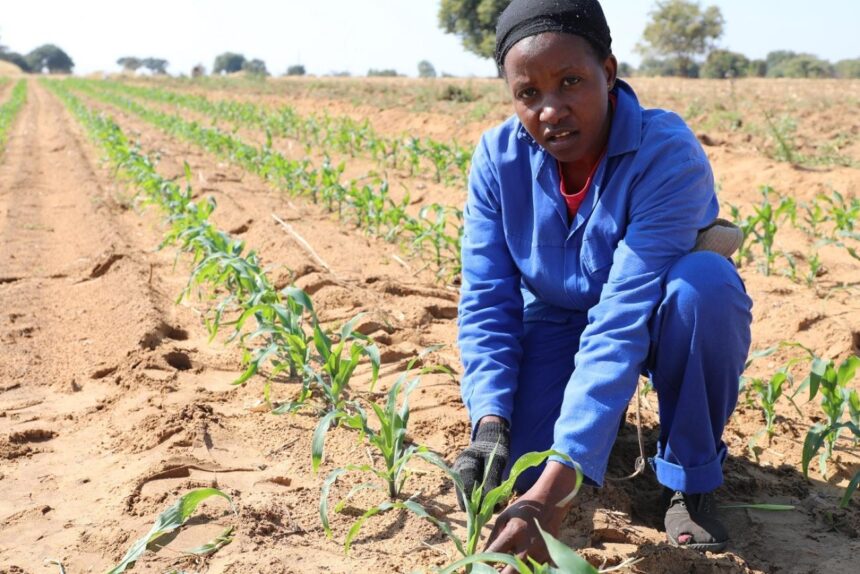Namibia instantly became a more attractive international and domestic investment destination when President Netumbo Nandi-Ndaitwah recently announced a reduction in the country’s non-mining corporate tax.
A seasoned economist has pointed out that the tax changes combined with other reforms signify a long-term economic structural shift that can propel key sectors.
During her maiden State of the Nation address (SONA) on 24 April, Nandi-Ndaitwah announced a reduction of non-mining company and corporate tax rate to 30% in 2025, and further down to 28% in 2026.
The President extended amnesty by an additional two years until 2026 for taxpayers to get their tax affairs in order.
In addition, she increased the mandatory registration threshold for value-added tax to N$1 million to provide tax administration relief to small businesses.
During her address, the President announced that the planned Special Economic Zones (SEZs) are expected to have a corporate income tax rate of 20%.
This is the same for all SMEs with an annual turnover below the defined threshold.
Nandi-Ndaitwah said these tax reforms seek to enhance the competitiveness of the tax system to attract investments and foster private sector development, broaden the tax base and improve revenue mobilisation to maintain equity in the taxation regime.
“The global economy is in a state of flux, with trade protectionist policies and prolonged conflicts creating market uncertainty and volatility. Inward-looking policies by the major economies call for the intensification of our efforts to become self-reliant,” said the President.
Weighing in on these developments, well-known economist John Steytler said the tax reforms represent a bold and strategic attempt to revitalise Namibia’s economic landscape by enhancing the competitiveness of its tax system and encouraging diversification beyond extractive industries.
“These reforms are designed not just to offer immediate relief but to create long-term structural shifts. By making Namibia a more attractive destination for both domestic and regional investment, the reforms can drive growth in key sectors like agriculture, tourism, and light industry,” he added.
A former presidential economic advisor, former CEO of the Development Bank of Namibia and founding statistician general of the Namibia Statistics Agency, Steytler currently runs R&J Steytler Management Consulting.
In response to New Era queries, Steytler noted that the phased reduction of the non-mining corporate tax rate from 31% to 28% by 2026, alongside the increase in the VAT registration threshold to N$1 million, shows a clear intention to reduce the burden on local businesses and stimulate domestic investment.
“The extension of the tax amnesty period provides further breathing room for enterprises recovering from past financial strain, potentially broadening the tax base through improved compliance and formalisation. Most notably, the introduction of SEZs and a preferential 20% corporate tax rate for SMEs and SEZ participants highlights a targeted effort to empower local entrepreneurship and attract new industries, particularly in manufacturing, green energy and logistics,” he added.
He said lower tax burdens increase cash flow for small businesses, allowing for reinvestment, hiring and scaling up.
These are particularly vital in a country with youth unemployment above 44%.
“Moreover, tax incentives within SEZs can serve as catalysts for industrialisation if supported by infrastructure and efficient governance. However, the success of these reforms will hinge on implementation, including streamlined bureaucracy, reliable utilities and clear communication of amnesty and SEZ terms, without which the policy changes risk falling short of their full impact,” Steytler noted.
The economist highlighted that in the broader context, these reforms align well with Namibia’s projected economic trajectory, namely 4.5% gross domestic product (GDP) growth in 2025 and with the President’s inclusive development agenda.
Steytler said challenges remain, such as high public debt (61% of GDP), inequality and the need for rural inclusion, which he said must be factored into execution.
“There are trade-offs to manage, such as potential revenue shortfalls and the risk that initial benefits will favour more established urban businesses. For these reforms to truly transform Namibia, the government must back them with decisive action on infrastructure, digitalisation and youth-targeted support programmes. If effectively implemented, these policies could mark a turning point for Namibia’s private sector, positioning it as a regional hub for sustainable, inclusive development”.


